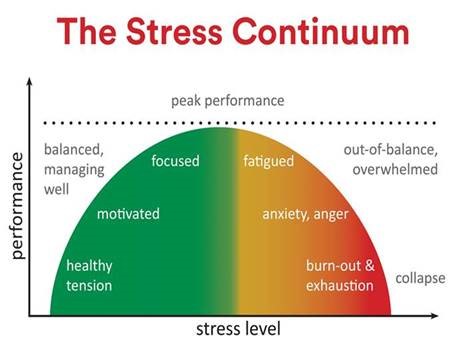In today’s fast-paced world, understanding The Impact Of Stress On Health: Effective Strategies For Stress Management is more crucial than ever. Stress is a common experience that can significantly affect our physical and mental well-being. From anxiety and depression to heart disease and weakened immune function, the repercussions of unmanaged stress can be profound. This article delves into the intricate relationship between stress and health, highlighting the importance of recognizing stressors and implementing effective management techniques.
As you continue reading, you will uncover the various ways stress manifests in our lives and its potential long-term effects on our health. We will explore practical strategies for stress management, including mindfulness practices, physical activity, and time management techniques. By understanding these methods, you can take proactive steps to mitigate stress and enhance your overall quality of life.
Moreover, this article will provide insights into the psychological and physiological responses to stress, equipping you with the knowledge to identify your stress triggers. Whether you are seeking to improve your personal well-being or support others in managing their stress, the information presented here will empower you to make informed decisions. Join us on this journey to better health and well-being as we explore effective strategies for managing stress.
Stress is a common experience that can significantly affect both mental and physical health. Understanding the impact of stress on health is crucial for developing effective stress management strategies. This article explores various aspects of stress and offers practical solutions to mitigate its effects.
Understanding the Physiological Effects of Stress
Stress triggers a complex physiological response in the body, often referred to as the “fight or flight” response. When faced with stressors, the body releases hormones such as cortisol and adrenaline, which prepare the body to respond to perceived threats. While this response can be beneficial in short bursts, chronic stress can lead to serious health issues, including cardiovascular diseases, weakened immune function, and digestive problems.
Long-term exposure to stress can result in a range of health complications. For instance, elevated cortisol levels can contribute to weight gain, high blood pressure, and increased risk of diabetes. Understanding these physiological effects is essential for recognizing the importance of stress management in maintaining overall health.
The Psychological Impact of Stress
In addition to physical health, stress has profound psychological effects. Chronic stress can lead to anxiety, depression, and other mental health disorders. Individuals experiencing high levels of stress may find it challenging to concentrate, make decisions, or maintain relationships, which can further exacerbate their stress levels.
Recognizing the psychological impact of stress is vital for developing effective coping strategies. Techniques such as mindfulness, cognitive-behavioral therapy, and relaxation exercises can help individuals manage their stress and improve their mental well-being. By addressing both the physical and psychological aspects of stress, individuals can create a more balanced approach to health.
Lifestyle Changes for Effective Stress Management
Implementing lifestyle changes can significantly reduce stress levels. Regular physical activity, a balanced diet, and adequate sleep are essential components of a healthy lifestyle that can help mitigate stress. Exercise, in particular, is known to release endorphins, which are natural mood lifters.
Additionally, incorporating relaxation techniques such as yoga, meditation, or deep-breathing exercises can enhance stress management. These practices not only promote relaxation but also improve overall mental clarity and emotional resilience. By making conscious lifestyle choices, individuals can better equip themselves to handle stress effectively.
The Role of Social Support in Stress Management
Social support plays a crucial role in managing stress. Having a strong support network can provide individuals with the emotional resources needed to cope with stressors. Friends, family, and support groups can offer encouragement, understanding, and practical assistance during challenging times.
Engaging in social activities and maintaining connections with others can also serve as a buffer against stress. Studies have shown that individuals with strong social ties tend to experience lower levels of stress and better health outcomes. Therefore, fostering relationships and seeking support when needed is an essential strategy for effective stress management.
Professional Help and Stress Management Techniques
For some individuals, stress may become overwhelming, necessitating professional help. Therapists and counselors can provide valuable insights and coping strategies tailored to individual needs. Techniques such as cognitive-behavioral therapy (CBT) can help individuals reframe negative thought patterns and develop healthier responses to stress.
In addition to therapy, various stress management programs and workshops are available that teach practical skills for managing stress. These programs often include techniques such as time management, assertiveness training, and relaxation methods. Seeking professional help can be a vital step in regaining control over stress and improving overall health.
| Aspect | Description |
|---|---|
| Definition of Stress | Stress is a natural response of the body to perceived threats or challenges, often referred to as the “fight or flight” response. |
| Types of Stress | Stress can be categorized into acute stress (short-term) and chronic stress (long-term), each having different effects on health. |
| Physical Health Effects | Chronic stress can lead to various health issues, including cardiovascular diseases, weakened immune system, digestive problems, and obesity. |
| Mental Health Effects | Stress is linked to mental health disorders such as anxiety, depression, and burnout, affecting overall well-being. |
| Signs of Stress | Common signs include irritability, fatigue, difficulty concentrating, changes in sleep patterns, and physical symptoms like headaches. |
| Effective Stress Management Strategies |
|
| Conclusion | Managing stress effectively is crucial for maintaining both physical and mental health. Implementing stress management strategies can lead to a healthier, more balanced life. |
This HTML document provides a structured overview of the impact of stress on health and effective strategies for stress management in a tabular format.

